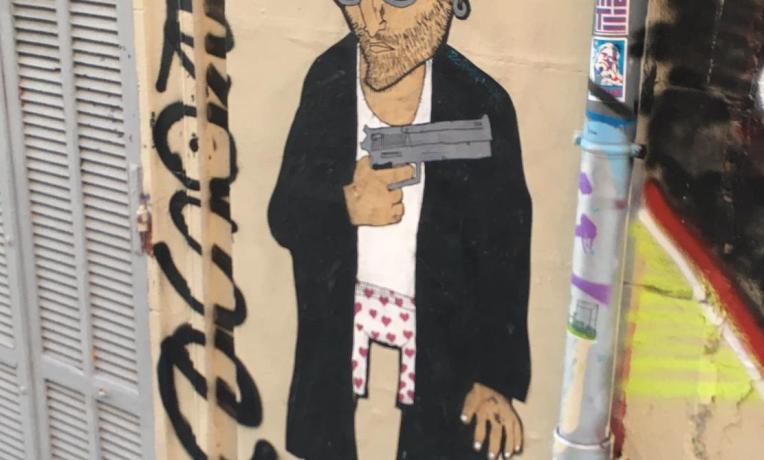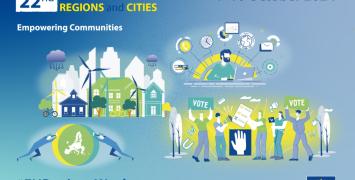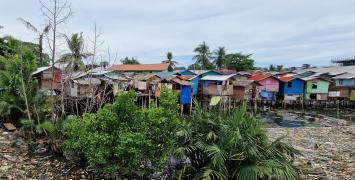Studying gangs from the inside

By Lisa Motzig
Dennis Rodgers has spent much of his career practicing what he calls ‘delinquent ethnography’ - the study of individuals engaged in criminal activity through immersive and participative observation. His ERC-funded GANGS project builds on decades spent immersing himself in ganglands in Nicaragua and other places around the world. His aim was to build a comparative investigation of global gang dynamics. From his involvement with a Nicaraguan gang in the 1990s to today, Rodgers has first-hand experiences of the challenges, possibilities, and ethical dilemmas inherent in studying gangs, living as a researcher within a gang, and adopting frontier research methods.
Overcoming ethical concerns
The GANGS project raises numerous ethical questions. How can an ethnographer study criminals while ensuring their participation in the research and protecting them from negative consequences? What should an ethnographer’s response be when witnessing criminal behaviour during fieldwork? How does one manage the ethical dilemma of feeling complicit in illicit activities? In short, where does the line blur between studying gangs and inadvertently becoming complicit with them?
According to Dennis Rodgers, adopting a radically relational approach allows ethnologists to overcome many of the ethical challenges associated with ‘delinquent ethnography’. This begins with self-awareness, ensuring researchers do not engage in activities they are uncomfortable with. But most importantly, “you have to consider people as people, and not just data points”, as Rodgers puts it.
By putting relationships at the core of his research method, Rodgers built meaningful connections with gang members in Nicaragua that have lasted more than twenty years. Trust and honesty have been the cornerstones of his immersive fieldwork. Similarly, GANGS project senior researcher Steffen Jensen applied this approach in his long-term work with a South African gang. Drawing from their experiences in Nicaragua and South Africa, the GANGS project initiated a comparative study of global gang dynamics that has also included research in France, Italy, and Spain.
Embracing social dynamics
Adopting a relational approach to studying the dynamics of gangs also involves understanding their fundamentally socially embedded nature. For instance, when the GANGS team started their ethnographic fieldwork in Marseille, a place they had not worked in previously, their initial focus was on connecting with the local community, including local associations and families living in the studied area, as a means to access gangs.
According to Rodgers, effective long-term ethnography depends on the quality of relations established during the study. Similarly, the dangers associated with studying criminals – for both researchers and research participants – often stem from misunderstandings or ignorance of underlying connections and social dynamics. In such contexts, knowing the right person at the right moment, and who connects with who, can make a difference between safety and danger.
In short, Rodgers shares that the science of ethnography comes down to being radically open to social connection, also because ethical conduct heavily depends on the situation and relationships involved. Beyond generic ground rules such as “do not harm, respect people, don’t do things you don’t want to do,” acting ethically in dangerous fieldwork situations fundamentally relies on understanding the context and consequences of decisions. As Rodgers relates. “a researcher witnessing a child being abused by their parents may initially want to warn social services. However, understanding the context and consequences of such a decision might convince them to instead turn to an informal authority figure who could be in a better position to manage the situation.”
Finally, close collaboration between researchers themselves is essential to collectively discuss ethical dilemmas that may arise. By sharing their insights, researchers can question their own biases, observe an ethical question under a new perspective and improve their analysis overall. This was one of the clear benefits of the GANGS project’s collaborative research.
Gangs as embedded social phenomena
Through observations, interviews, and network analyses conducted in Marseille (France), Naples (Italy), Algeciras (Spain), Cape Town (South Africa), and Managua (Nicaragua), Rodgers and his team reached a number of conclusions about what systematically defines gang dynamics.
One significant finding challenges prevailing perceptions: gangs are not disconnected from society but emerge and evolve within a broader societal context, often connected to issues of unequal urban development. For example, gangs frequently recruit members from their inner circles of friends and family within their neighbourhood, prioritising familiarity for safety over impersonal recruitment processes.
Furthermore, the research found that gang membership is rarely forever. At the same time, through the compilation of more than thirty life stories of gangsters by collaborating researchers worldwide, it also became evident that life trajectories are not deterministic. For example, spending time in prison can help gang members break ties with their gang or drag them deeper into criminality, depending on broader circumstances. Moreover, contrary to common belief, many gangsters pursue alternative, non-criminal paths after leaving the gang, such as becoming poets, small business owners, or youth social workers (in the latter case drawing on their gangster experiences).
The GANGS project also provides policy insights, showing that repressive policies against gangs seldom succeed in stopping violence. Rodgers suggests that alternative approaches, emphasizing collaboration between social workers and the police, based on building relations with families and local communities, hold more promise. Comparing gang dynamics in several gang-affected areas, Rodgers for example noted the disconnection between social workers and the police in Marseille, France, which may be one reason for the persistence of violence and tensions in the city.
An unparalleled opportunity
For Rodgers, immersive ethnography offers an unparalleled opportunity to develop a comprehensive understanding of gangs, their members, and their dynamics over an extended period. But this obviously takes time, which is what the grant that he received from the ERC allowed. During the implementation of his project, Rodgers also appreciated the balanced approach offered by the ERC to ethics, which ensured the application of rigorous standards that did not however impede the research process.
Moreover, thanks to the flexibility granted by the ERC, Rodgers could dynamically adapt his research approach to seize opportunities that presented themselves, including conducting in 2022 the first comprehensive household survey in the Félix-Pyat estate in Marseille. Based on a representative sample of 228 (out of 605) households in the estate, the survey results shed light on the living conditions of this population as well as their perceptions of violence and insecurity in the area.
Rodgers concludes by saying: “I was very fortunate, as GANGS was my ideal project and the ERC funded it”.
Biography
Dennis Rodgers is a social anthropologist specialised in the interdisciplinary and comparative study of urban development issues, more specifically conflict and violence, spatial governance and planning, urban politics, as well as qualitative research methods and alternative forms of representation. He has conducted over 25 years of longitudinal fieldwork in Nicaragua, as well as in Argentina, India (Bihar), Switzerland, and France. Apart from being globally recognised as an expert on gangs and urban violence, he has also contributed significantly to debates about the possibilities, tensions, and limitations associated with ‘dangerous’ fieldwork, including in particular with regard to ethical issues and security risk management. He is currently a research professor at the Geneva Graduate Institute, in charge of a global team of over 40 researchers for the ERC-funded GANGS project, which runs until 30 June 2024






